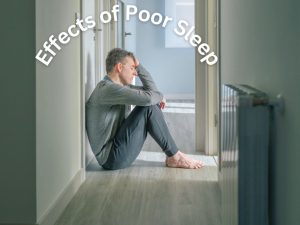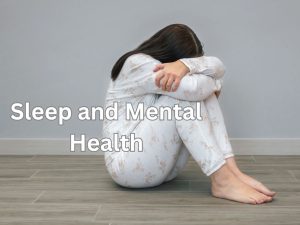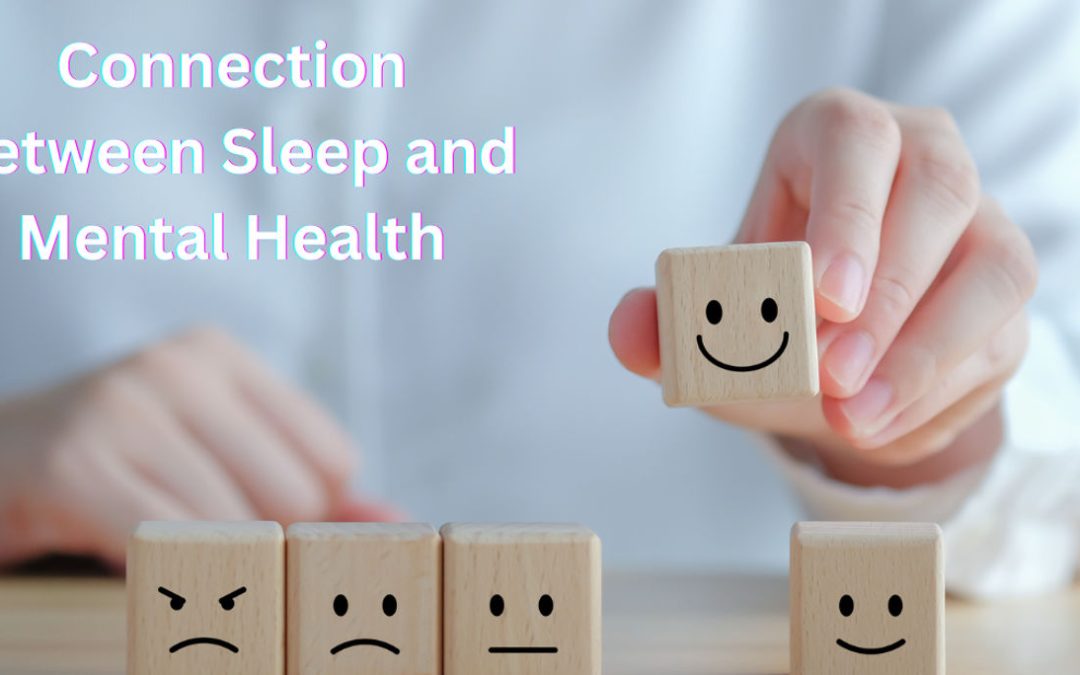Sleep and Mental Health: Why Rest is Key to a Healthier Mind
“Have you ever wondered why you feel sluggish and scatterbrained after an unproductive night? You are not alone in feeling that way. Sleep is essential for the rest of the world. It is also the source of happiness and good mental health. In what follows, we delve into the relationship between sleep and mental health and how understanding it can empower people to rest for better living.”
Introduction
Many individuals forgo sleeping during periods of hustle, but it is vital to understand the greater problem extensive work hours can have Lack of sleep affects energy levels but can also exacerbate clinical depression and anxiety symptoms. Sleep and mental health are deeply interconnected, so that if one suffers, the other is impacted in a negative manner. Improving sleep greatly benefits mental health.
If you have been feeling fatigued, moody, and lack emotion, it may be due to lack of sleep. In this post we will cover how sleep can help you improve mental health along with overweighting and helpful tips to get more sleep.
Science of Sleep and Mental Health
Living with a mental health issue can impact your sleep, and getting inadequate sleep can have an impact on your mental health. Sleep is not only an inactive condition but an active process by which your brain is recharged, emotions cleared, and memories stored. When sleeping, your brain passes through stages, such as REM sleep, which is particularly essential for the regulating of emotion.
According to research, findings include:
•It has been indicated that lack of sleep may stimulate the production of stress hormones like cortisol, making one feel highly anxious and irritated.
•Sleep deprivation interferes with the brain’s function to go through with negative emotions, and you start to experience mood swings and depression.
•Chronic sleep conditions are known to trigger mental issues that last in the long run, such as bipolar disorder and PTSD.
Fact: Did you know that those who have insomnia are 10 times probable to develop depression and 17 times probable to know anxiety?
The Most Common Effect of Poor Sleep

The main consequence of sleep deprivation is an increase in anxiety, which slows down your prefrontal cortex, which is in charge of rational thought, and promotes hyperactivity in the amygdala, the brain’s emotional control center. This leaves you unable to manage stress easily and makes you feel on edge.
•Sleep deprivation and anxiety feed on each other – anxiety makes one sleep worse while lack of sleep worsens the anxiety.
•Experiments have found that even an overnight poor quality sleep can rise anxiety levels as much as by 30%.
The Effect of Sleep on Depression and Mood
Sleep is crucial in maintaining the mood. In case of a lack of sleep, your brain faces difficulties in producing serotonin and dopamine—chemicals that can evoke happiness and balance in you.
•Chronic sleep problems put people at an increased risk of getting major depression.
•People with insomnia face an increased prospect of feeling sad, weak and lacking energy and motivation for ages.
How Stress and Sleep Are Linked

Stress and sleep are interdependent. High stress levels can affect the ability to fall asleep; poor sleep intensifies stress.
•Elevated cortisol, or the stress hormone, is very common in most people with disorders related to sleeping.
•Poor sleep reduces your tolerance for daily challenges, making any small challenge huge.
Best Sleep Habits for Mental Health
The good news? Your mental health can be significantly impacted by getting better sleep. You can begin these excellent sleep practices for mental wellness right now:
Keep Your Sleep Schedule Consistent
You may control your body’s internal clock by going to bed and waking up at the same time every day. This makes it easier to fall asleep and wake up feeling refreshed.
Create a Calm Sleeping Routine
Before going to bed, relaxing with a warm bath, meditation, or reading can be helpful. Before going to bed, avoid using screens for at least an hour since blue light can interfere with the production of melatonin.
Improve the Quality of Your Sleep
Ensure that your bedroom is cool, dark, and quiet. Invest in pillows and a comfortable mattress to create a sleeping environment.
Avoid caffeine and alcohol
Both may disrupt your sleep cycle. Try to avoid caffeine after 2:00 PM and limit alcohol intake, particularly before bed.
Practice mindfulness techniques or meditation
These techniques can reduce anxiety and encourage mental clarity, which will make it easier to fall asleep.
Exercise Regularly
It has been evidenced that physical activities enhance the sleep quality and lower symptoms of depression and anxiety.
Write It Down
Keep a journal to jot down your thoughts before bed. This may reduce overthinking and help you clear out your thoughts.
Limit Naps
While naps are fun, they can disrupt your natural sleep cycle if you take them for an extended period of time or at the wrong time of day.
When to Consider Professional Intervention
If you still cannot overcome the sleep disorders following changes in habits for insomnia, anxiety, and depression, perhaps it is now the right time to consider seeing a therapist or sleep specialist, who will look for the issues causing your difficulty and then proceed with an effective plan.
•CBT-I is an effective treatment for chronic sleep issues.
•Improvement in mental health conditions such as anxiety or depression can also be helpful in sleep quality.
Conclusion
Getting adequate sleep is essential for your mental well-being, thus it’s not a luxury. Prioritizing sleep not only allows your body to relax, but it also offers your mind the tools it needs to perform at its peak.
Regardless matter whether you’re feeling overwhelmed, depressed, or anxious, better sleep could be the missing piece. Remember that you are not on your own. Making small changes to your sleeping habits might have a big impact on your mental health. Your mental health can significantly improve with minor adjustments to your sleeping patterns. Your mind will appreciate it if you give yourself the gift of sleep tonight.
“Ready to take the first step toward better sleep and mental health? don’t be afraid to get expert mental health like Mind Canvas help if you’re having difficulties. Everyone deserves a good night’s sleep, so please share this blog with someone who might benefit from a little additional help.

